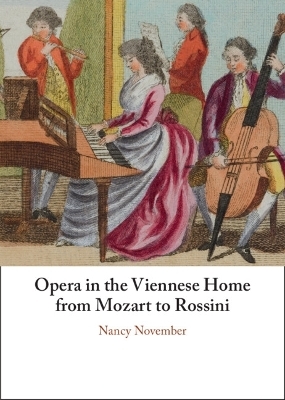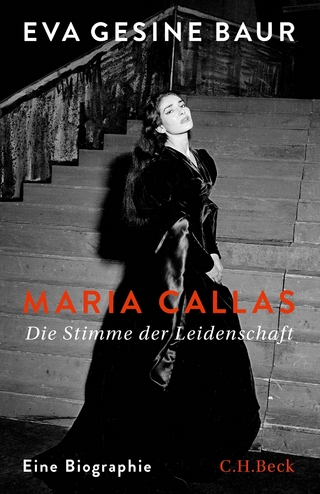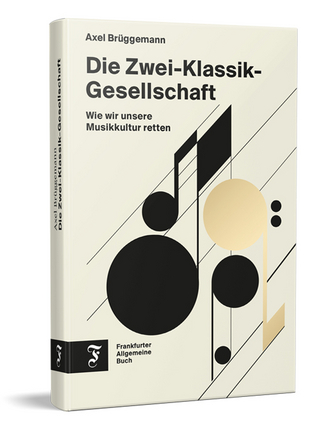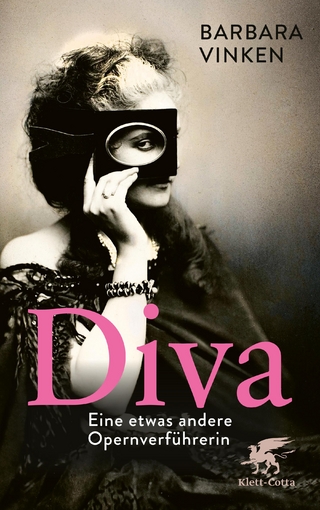
Opera in the Viennese Home from Mozart to Rossini
Seiten
2024
Cambridge University Press (Verlag)
978-1-009-40980-3 (ISBN)
Cambridge University Press (Verlag)
978-1-009-40980-3 (ISBN)
The many and varied domestic musical arrangements of opera that circulated in Vienna provide a unique window on the world of nineteenth-century amateur music-making. This study takes a novel stance for musicology, prioritising musical arrangements over original compositions, and female amateurs' perspectives over those of composers.
Domestic musical arrangements of opera provide a unique window on the world of nineteenth-century amateur music-making. These arrangements flourished in especially rich variety in early nineteenth-century Vienna. This study reveals ways in which the Viennese culture of musical arrangements opened up opportunities, especially for women, for connoisseurship, education, and sociability in the home, and extended the meanings and reach of public concert life. It takes a novel stance for musicology, prioritising musical arrangements over original compositions, and female amateurs' perspectives over those of composers, and asks: what cultural, musical, and social functions did opera arrangements serve in Vienna c.1790–1830? Multivalent musical analyses explore ways Viennese arrangers tailored large-scale operatic works to the demands and values of domestic consumers. Documentary analysis, using little-studied evidence of private and semi-private music-making, investigates the agency of musical amateurs and reinstates the central importance of women's roles.
Domestic musical arrangements of opera provide a unique window on the world of nineteenth-century amateur music-making. These arrangements flourished in especially rich variety in early nineteenth-century Vienna. This study reveals ways in which the Viennese culture of musical arrangements opened up opportunities, especially for women, for connoisseurship, education, and sociability in the home, and extended the meanings and reach of public concert life. It takes a novel stance for musicology, prioritising musical arrangements over original compositions, and female amateurs' perspectives over those of composers, and asks: what cultural, musical, and social functions did opera arrangements serve in Vienna c.1790–1830? Multivalent musical analyses explore ways Viennese arrangers tailored large-scale operatic works to the demands and values of domestic consumers. Documentary analysis, using little-studied evidence of private and semi-private music-making, investigates the agency of musical amateurs and reinstates the central importance of women's roles.
Nancy November is a Professor of Musicology at the University of Auckland. Combining interdisciplinarity and cultural history, her research centers on chamber music around 1800, probing questions of historiography, canonization, and genre. She is the recipient of a Humboldt Fellowship; and three Marsden Grants from the New Zealand Royal Society.
Introduction; 1. Opera in the 'fruitful age of musical translations'; 2. Kenner und Liebhaber: Meeting the domestic market; 3. Female agency in the early nineteenth-century Viennese musical salon; 4. Canon formation, domestication, and opera; 5. Rossini 'as the Viennese Liked it'; 6. Industry, agency, and opera arrangements in Czerny's Vienna; Acknowledgements; Bibliography.
| Erscheinungsdatum | 09.01.2024 |
|---|---|
| Zusatzinfo | Worked examples or Exercises |
| Verlagsort | Cambridge |
| Sprache | englisch |
| Themenwelt | Kunst / Musik / Theater ► Musik ► Klassik / Oper / Musical |
| ISBN-10 | 1-009-40980-8 / 1009409808 |
| ISBN-13 | 978-1-009-40980-3 / 9781009409803 |
| Zustand | Neuware |
| Haben Sie eine Frage zum Produkt? |
Mehr entdecken
aus dem Bereich
aus dem Bereich
wie wir unsere Musikkultur retten
Buch | Hardcover (2023)
Frankfurter Allgemeine Buch (Verlag)
24,00 €


